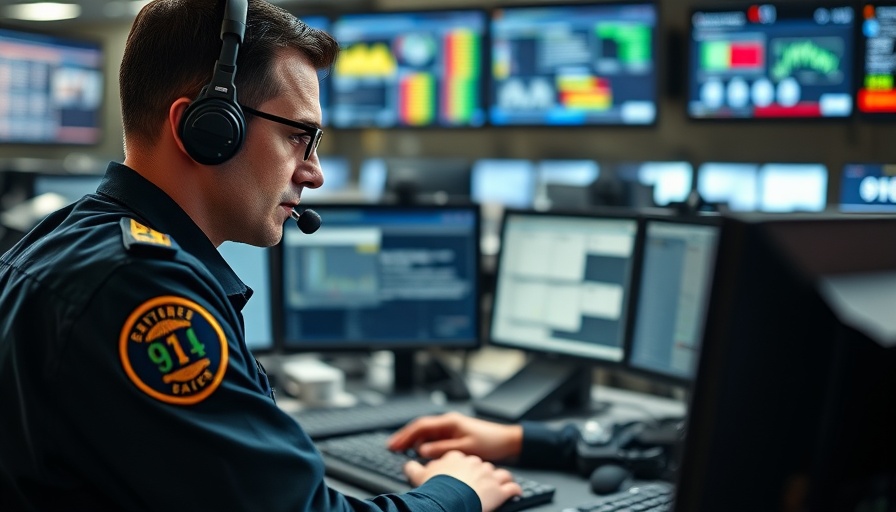
How AI Is Transforming 911 Dispatch Centers
In an era where efficiency and speed are paramount, 911 dispatch centers across the U.S. are facing unprecedented challenges. Staffing shortages have led to a pressing need for innovative solutions to manage call volumes adequately. Enter Aurelian, a groundbreaking company that aims to leverage artificial intelligence to address these pressing issues.
The Origins of Aurelian: A Solution to Staffing Challenges
Aurelian began as a company focused on automating appointment bookings for hair salons. However, after founder Max Keenan identified a more significant problem while speaking with one of his clients, the company quickly pivoted to address the inefficiencies in emergency call centers. Keenan discovered that the same personnel answering routine non-emergency calls were often responsible for handling critical emergency situations, leading to a backlog of calls and stranded citizens needing urgent assistance.
The Rise of AI in Emergency Services
In response to this problem, Aurelian developed an AI voice assistant designed specifically for 911 centers. By triaging non-urgent calls such as noise complaints and minor incidents, this AI technology ensures that emergency responders can focus their attention on critical situations rather than being bogged down by trivial issues. Launched in May 2024, Aurelian’s AI has already been integrated into several dispatch centers, from Snohomish County, Washington, to Kalamazoo, Michigan, showcasing its adaptability across various regions.
The Benefits of AI Deployment in Dispatcher Roles
The deployment of AI in 911 call centers carries multiple benefits. Firstly, it significantly reduces wait times for non-emergency callers, who might previously have experienced long hold times before being attended to by a dispatcher. This transition not only enhances the efficiency of emergency services but also allows dispatchers to focus on vital calls, potentially saving lives and improving response times in critical situations.
Challenges in the Transition to AI: Balancing Efficiency and Human Touch
However, integrating AI into emergency response systems isn't without its challenges. There is a distinct fear among some stakeholders regarding the reliability of AI systems in recognizing emergencies accurately. Critics argue that while AI can handle many routine inquiries, the inherently unpredictable nature of emergency calls requires human intuition and experience. As emergency dispatching is a high-pressure role with a historically high turnover rate, fostering trust in AI's reliability is essential to ensure that the system supports and enhances human capabilities rather than replacing them.
Future Trends: What Lies Ahead for 911 Dispatch Centers?
Looking ahead, experts suggest that we will see an increased reliance on AI technologies as municipalities strive to adapt to staffing shortages. Predictive models may soon emerge, allowing centers to anticipate peak call times based on historical data, enabling proactive staffing solutions. Furthermore, AI could evolve to enable enhanced data-sharing practices between different jurisdictions, making for a more coordinated response during large-scale emergencies.
Emotional Impact and Community Trust
For communities, knowing that their local 911 dispatch center is implementing such innovative approaches brings both relief and concern. While technology offers promising solutions to staffing crises, many community members value the human connection that comes with speaking to a real person during emergencies. It is crucial for dispatch centers to reassure the public of their commitment to maintain a human touch and connect them with services promptly.
Ultimately, the integration of AI in 911 centers seems to be a solution not just meant to relieve pressure, but also to pave the way for a more efficient, responsive, and adaptive emergency response system that recognizes the unique needs of urban environments.
 Add Row
Add Row  Add
Add 



Write A Comment